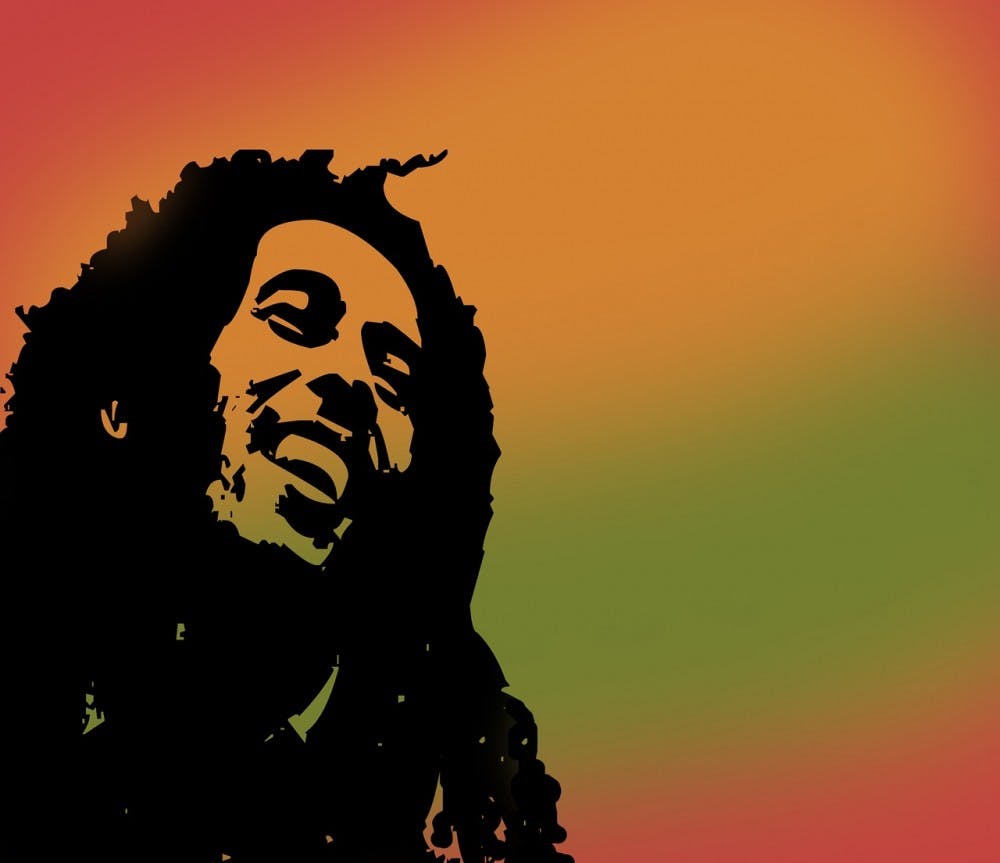If you polled a random sample of Americans about which reggae artists they could name, the most popular answer would undoubtedly be “Bob Marley.” After that, it’s anyone’s guess—Damian Marley? The Wailers? Ziggy Marley? The reality is that traditional reggae hasn’t had a true “face” since Bob Marley’s passing in 1981. Many dismiss it as a genre for hippies, potheads, and Rastafarians, ignoring the storied and unique subculture of the genre.
However, Chronixx is here to teach us casual reggae listeners that his take on the genre can possess a distinctive and modern sound and stick to reggae’s origins. Some artists, like Drake, have recently come under fire for musical appropriation of dancehall and reggaeton music. Critics argue that Drake doesn't stay true to his Canadian heritage when he incorporates steel drums and tropical sounds in his chart–topping hits. Yet, Jamar McNaughton—the reggae artist hailing from Kingston, Jamaica that goes by “Chronixx"—is here to remind us that you can achieve fame with tropical sounds without straying from your roots. While dancehall certainly draws on many aspects of reggae and has proven invaluable for drawing casual listeners into the world of more tropical—based music, reggae’s reemergence into a youthful spotlight has been long overdue.
His newest album, Chronology, released this summer, is a collection of reggae music suffused with rock, soul, pop, and hip–hop. The album offers a confident mix of music that sounds modern, but never wanders from elements of McNaughton’s Jamaican upbringing. “Big Bad Sound,” the second track of Chronology, features Chronixx sing–rapping over a beat. At times, it sounds like a stereotypical reggae song, but then the beat suddenly speeds up to a quicker pace, incorporating rhythmic drums and swinging bass. “Country Boy” balances classic reggae and rock with a rippling guitar solo that acts as the bridge bookended by the more traditional steel drums of reggae. “I Can,” meanwhile, works in soulful and upbeat pop influences as an ode to positivity, with Chronixx singing, “Oh every morning, oh every morning / I rise, I stare at the sun / I know it is a blessing / So when the evening comes, I / Lift up my eyes to the hills I'm blessed, oh man / With my two hands in the air as far as I can.”
Chronixx’s true talent shines when he blends more distinct genres. His masterpiece “Black is Beautiful,” a song pleading for people everywhere of African descent to celebrate their ethnicity and encourage self–esteem. The song itself is almost as outstanding as its message, with Chronixx incorporating a boom–bap sound of hip–hop and violins towards the end, adding an inspiring tune to an already–inspirational song. “Likes,” one of the album’s standout tracks, serves as a fast–paced, dancehall–inspired track that calls for listeners to live life for yourself, not for social media attention or fame. At the same time, “Likes” acts as an important call–out to Jamaican dancehall artists that there is too much infighting in the industry. However, many artists nowadays are so focused on petty disagreements and internal strife that they are inhibiting the global spread of their music. While Chronixx is almost always a beacon of positivity, the young artist is conscious of the fact that Bob Marley remains the leading reggae seller on iTunes.
Consequently, non–Jamaican artists like Drake and Rihanna have been able to capitalize on the movement from outside of Jamaica. On the song "Likes," Chronixx sings, "Simply mean we not ready yet / We put the music first, dancehall / While we do ya, and war and hype / Ri–ri work, work, work dancehall.” This is not to say Chronixx disapproves of Drake and Rihanna’s use of dancehall music in their discography—he wants Jamaican artists to also get recognition for what used to be a Jamaican–inspired genre.
Despite Chronology’s status as his most acclaimed album, Chronixx’s passionate and complex blend of reggae isn’t limited to his most recent works. In his 2014 album, Dread & Terrible, Chronixx (who was 21 at the time of its release) still showed signs of his ability to revive the Jamaican movement in reggae for a more youthful audience. “Eternal Fire” incorporates sweeping synthesizers that could feel as at home in a Lil Uzi Vert song as they are in this reggae album, while “Rastaman Wheel Out” employs an organ in the background and trumpets in the chorus to add yet another soulful and uplifting element to his music.
Chronixx's music has caught the eye of the rest of the world, leading to collaborations with artists like Joey Badass and appearances at Glastonbury Music Festival—but more importantly, his take on the sound of reggae has begun to foster a revival of the genre.







